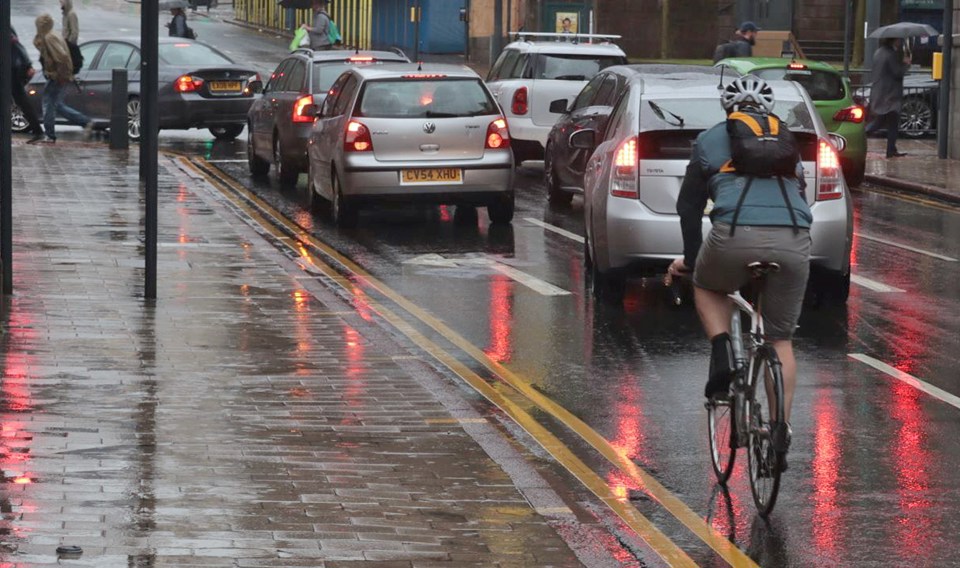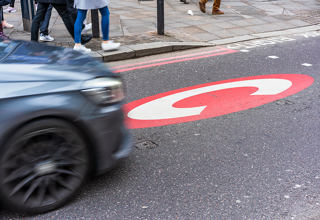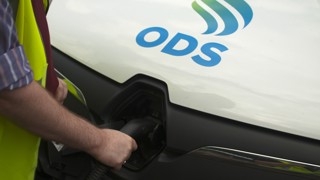A cross-party group of 14 political leaders from across the country are calling for Government support to tackle air pollution by funding 30 new and existing Clean Air Zones (CAZs)
The call follows the release of a report by UK100 – a network of local leaders who have pledged to shift to 100% clean energy by 2050 – shows that towns and cities could see an economic return of £6.5bn with support from the Government to tackle illegal levels of air pollution.
Air pollution is believed to contribute to up to 36,000 deaths a year and the Royal College of Physicians estimates the costs attributed to health problems resulting from exposure to air pollution total more than £20bn per year.
Economic sense
Polly Billington, Director of UK100, a network of local leaders that campaigns on clean air, said: “Cleaning up the air in our towns and cities makes sound economic sense and this study demonstrates that. It will boost the health of our communities and save the NHS money. Sensible investment by national government is needed to support local authorities to take the most polluting vehicles off our roads while ensuring that the poorest in our towns and cities are not the hardest hit by pollution and measures to tackle it.”
National health crisis
Sadiq Khan, Mayor of London, said: “Air pollution is a national health crisis which is responsible for tens of thousands of premature deaths around the country and costs over £20 billion a year. I have taken bold action to tackle lethal air in the capital with the Ultra Low Emission Zone, the first of the UK’s Clean Air Zones, which is already having a positive impact on reducing harmful emissions.
"But cities including London cannot deliver further Clean Air Zones without urgent government funding. This funding must include a new national vehicle renewal scheme, which would help businesses and residents prepare for London’s ULEZ expansion in 2021. Everyone deserves the right to breathe clean air and the Chancellor simply cannot afford to delay immediate action on this invisible killer.”
National scrappage scheme
Councillor Waseem Zaffar, Cabinet Member for Transport and Environment at Birmingham City Council, said: “We have always been clear that air pollution is not just a Birmingham issue; it is a national public health crisis. If the Government is serious about tackling this crisis then it needs to support other cities across the country in implementing their own Clean Air Zones so that we can all work together to clean up our air, as well as funding a national scrappage scheme. We have to ensure that those with the most polluting vehicles are able to make the switch to a cleaner, greener replacement as quickly and as smoothly as possible.”
Incentives
Under the UK100 plan, lower income residents and small businesses would be offered incentives of between £2,000 and £6,000 to either upgrade existing vehicles or get rid of their older, polluting vehicles and switch to a cleaner form of transport such as electric vehicles or public transport. As well as support for buying an ‘ultra low emissions’ vehicle, the cash could also be put toward car clubs, bike hire schemes or a public transport season ticket.
The report calls for a partnership with industry to contribute to a national vehicle renewal scheme, similar to how car manufacturers have contributed to the German Government’s Sustainability Mobility Fund for cities. London has received commitment from third party organisations (such as car clubs) for additional funding to support its car scrappage scheme.
Smart Transport
Polly Billington and Waseem Zaffar are among a host of influential speakers attending the Smart Transport Conference.
Held on 18 September, at ICC Birmingham, the Smart Transport Conference is the UK's most important meeting place for senior public policy makers and influential private sector leaders focused on delivering accessible and sustainable transport for all.
To find out more and book you place visit smarttransport.org.uk
UK100 to outline latest Clean Air Zone plans at Fleet Live 2019



















Login to comment
Comments
No comments have been made yet.